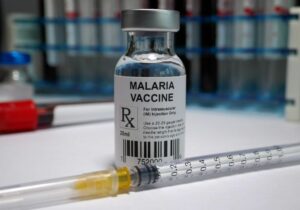New and better interventions needed to fight malaria – Network
 As the global community observes the World Malaria Day today, new and better tools are needed to prevent and treat the disease, particularly in areas where the parasite is becoming resistant to current treatments.
As the global community observes the World Malaria Day today, new and better tools are needed to prevent and treat the disease, particularly in areas where the parasite is becoming resistant to current treatments.
Research and development of new technologies and strategies, including new drugs, diagnostics, and vector control methods, are essential to stay ahead of the evolving threat of malaria.
These are contained in a statement signed by Dr. Charity Binka, Executive Secretary of the African Media and Malaria Research Network (AMMREN) and
copied to the Ghana Business News.
The Network is calling for collective efforts from governments, communities and individuals to eliminate the disease.
It noted that the theme for the day: “Time to Deliver Zero Malaria: Invest, Innovate and Implement” is a reminder that the fight against malaria is far from over.
According to AMMREN “it is not enough to have the tools to fight malaria. It is equally important for countries to ensure the effective implementation of malaria interventions to reduce the burden of the disease.”
“This includes ensuring that malaria prevention and treatment programmes reach the most vulnerable populations, including pregnant women and children under five, and that interventions are tailored to the specific needs of different regions and communities.”
The network said governments, international organizations, civil society, and the private sector must to work together to invest in malaria prevention and treatment, and innovate new tools and strategies to combat the disease to reduce the burden of malaria globally.
Though malaria is preventable and treatable, it is still a disease of global health threat, accounting for the death of thousands of people, particularly children in Sub-Sahara Africa.
The World Health Oorganization (WHO) estimates that there were about 619,000 malaria deaths globally in 2021 with as many as 247 million malaria cases.
According to the WHO, Africa alone accounted for 95% of all malaria cases and 96% of all deaths and children under 5 years accounted for about 80% of malaria deaths in Africa.
There are currently enough malaria interventions to eliminate the disease. These include the use of Insecticide Treated Nets (ITNs), Indoor Residual Spraying, Larvae Source Management and the malaria vaccine.
AMMREN has noted that with “the availability of such interventions, there is no reason why malaria should continue to be a major public health challenge in many parts of the world, needlessly claiming lives, particularly in sub-Saharan Africa.
It urged community members to participate in malaria prevention and treatment programmes in their communities, such as sleeping under insecticide-treated bed nets and test before taking antimalarial drugs.
“They must collaborate with local health authorities to help identify and report cases of malaria. Members of various communities should work with local leaders to promote community-based interventions, such as environmental management to reduce mosquito breeding sites….behavioural change is key to the elimination agenda,” it added.
AMMREN is a registered non-governmental organization made up of a network of African journalists and scientists working together towards the control and elimination of malaria. Established in 2006, AMMREN is based in Accra, Ghana. AMMREN has chapters in other countries and has over the past 17 years been actively involved in media advocacy for the elimination of malaria and other diseases on the African continent.
By Eunice Menka
Copyright ©2023 by NewsBridge Africa
All rights reserved. This article or any portion thereof may not be reproduced or used in any manner whatsoever without the express written permission of the publisher except for the use of brief quotations in reviews.
